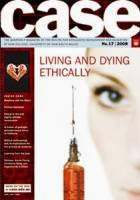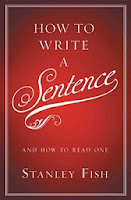 |
| Courtesy of WikiCommons |
Christmas Carols are no different - if we take Hark the Herald Angels Sing as an example
Hark the herald angels sing
“Glory to the newborn King!
Peace on earth and mercy mild
God and sinners reconciled”
Joyful, all ye nations rise
Join the triumph of the skies
With the angelic host proclaim:
“Christ is born in Bethlehem”
Hark! The herald angels sing
“Glory to the newborn King!”
Christ by highest heav’n adored
Christ the everlasting Lord!
Late in time behold Him come
Offspring of a Virgin’s womb
Veiled in flesh the Godhead see
Hail the incarnate Deity
Pleased as man with man to dwell
Jesus, our Emmanuel
Hark! The herald angels sing
“Glory to the newborn King!”
Hail the heav’n-born Prince of Peace!
Hail the Son of Righteousness!
Light and life to all He brings
Ris’n with healing in His wings
Mild He lays His glory by
Born that man no more may die
Born to raise the sons of earth
Born to give them second birth
Hark! The herald angels sing
“Glory to the newborn King!”
We see the the gospel message clearly proclaimed. Right from the the first verse we are told that God and sinners are reconciled through the birth of a new King. The third verse addresses Christ overcoming death and bringing new life to believers - eternal life. And yet it is the second verse that gave me pause for thought today. This Christmas Carol is being sung countless times this advent season, and not only in Churches, but at secular Christmas celebrations. For example, it is piped through hundreds of shopping centres and sung at public carol services of varied types.
The incarnation of Christ is at the centre of this carol. I suspect that some non-Christians must sing the words and not fully comprehend the enormity of the claims of the words. Christians throughout history return to the debate of reconciling the diverse views regarding Jesus' humanity and divinity.
Looking closely at the second verse of Hark the Herald Angels Sing
Veiled in flesh the Godhead see
Hail the incarnate Deity
Pleased as man with man to dwell
15 The Son is the image of the invisible God, the firstborn over all creation.19 For God was pleased to have all his fullness dwell in him, 20 and through him to reconcile to himself all things, whether things on earth or things in heaven, by making peace through his blood, shed on the cross.
Understanding the incarnation is essential in grasping what Christmas and Christianity is all about. And whilst the idea is not a simple one to grasp, it has been and will continue to be a well debated point of theology. Case Readers might find an article in the 2011 December edition Selling Christmas a helpful read when considering the Incarnation. The article is entitled "Veiled in Flesh: Can we believe the incarnation today?" (by Dr John McClean). It has been available on online.
CASE Associates receive Case magazine 4 times per year as part of their benefits. For blog followers who are yet to become CASE Associates you can sign up HERE or order a single copy HERE.
Send CASE an email


























.jpg)














